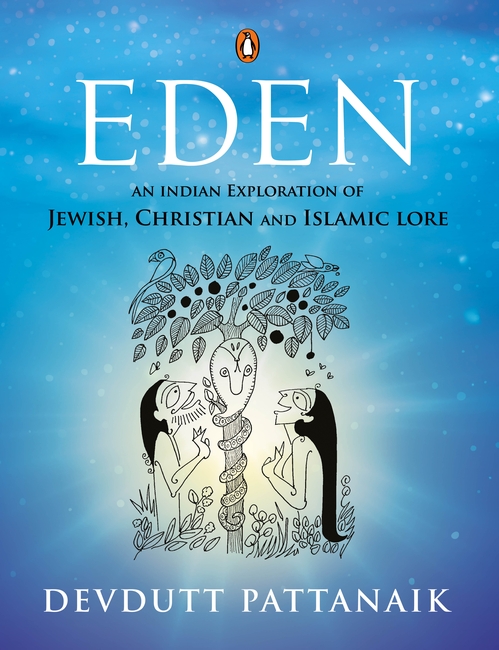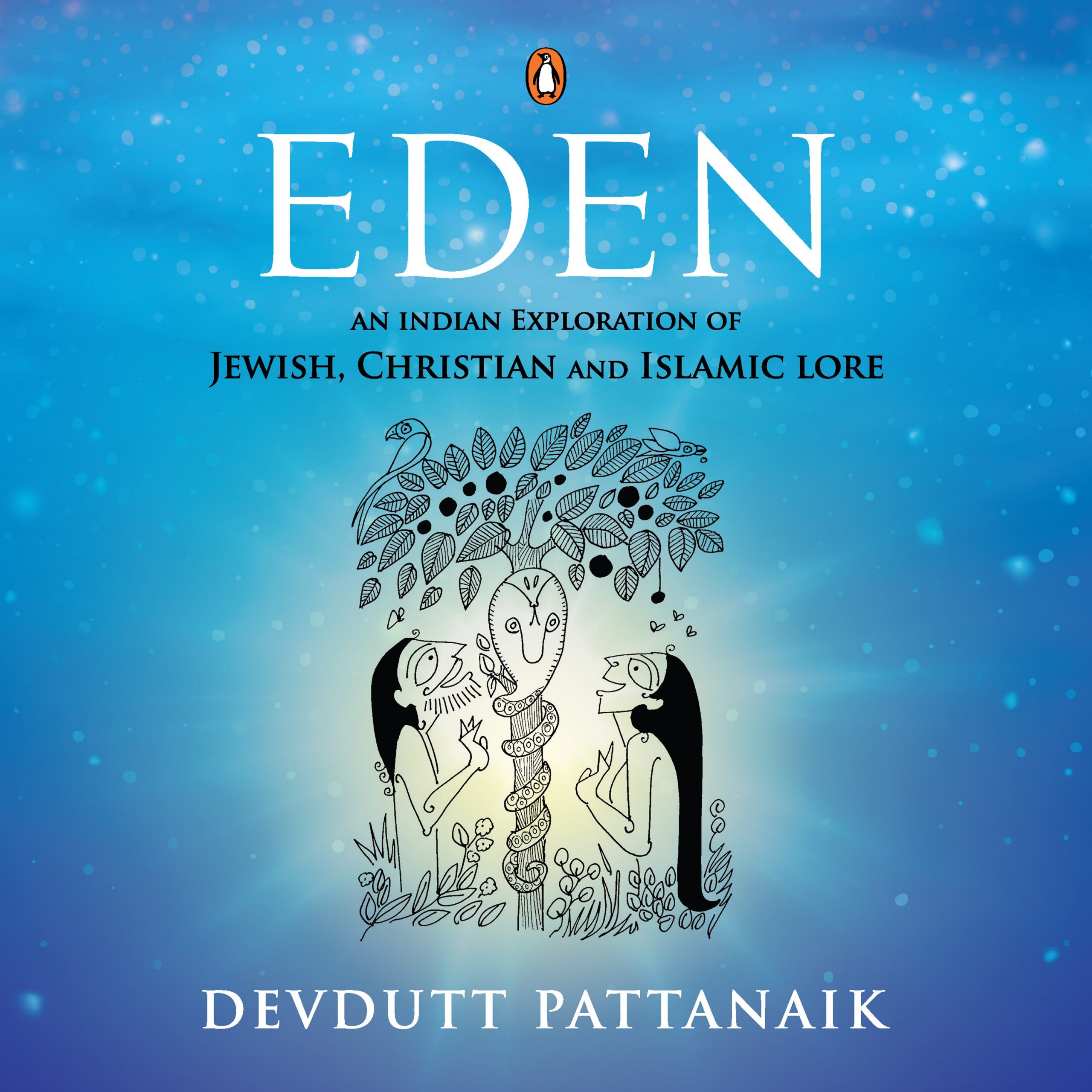
© 2020 Penguin India


Eden is the garden of happiness that humankind lost when Adam and Eve the first human couple, disobeyed the one true god, i.e., God, and ate the fruit of the forbidden tree. To this garden all humanity shall return if we accept God’s love and follow God’s law. It represents paradise in Abrahamic lore, which emerged over 4,000 years ago in the Middle East and has since spread to every corner of the world in three forms: Judaism, Christianity and Islam.
Like the Ramayana and Mahabharata, Jewish, Christian and Islamic tales too are cultural memories and metaphors, i.e. mythologies. They seek to make life meaningful by establishing a worldview based on one God, one life, and one way of living based on God’s message transmitted through many messengers. But these stories contrast Indian mythologies that are rooted in rebirth, where the world is without beginning or end, where there are infinite manifestations of the divine, both within and without, personal and impersonal, simultaneously monotheistic, polytheistic and atheistic.
Eden explores the vast world of Abrahamic myths from a uniquely Indian prism, through storytelling that is intimate but not irreverent, and to introduce readers to the many captivating tales of angels, demons, prophets, patriarchs, judges and kings. It also retells stories from Mesopotamian, Egyptian and Zoroastrian mythologies that in?uenced Abrahamic monotheism over time.
Imprint: India Penguin
Published: Dec/2021
ISBN: 9780670095407
Length : 312 Pages
MRP : ₹599.00
Imprint: Penguin Audio
Published: Jul/2023
ISBN: 9789357082020
Run time : 602 mins
Imprint: India Penguin
Published: Dec/2021
ISBN:
Length : 312 Pages
MRP : ₹599.00
Eden is the garden of happiness that humankind lost when Adam and Eve the first human couple, disobeyed the one true god, i.e., God, and ate the fruit of the forbidden tree. To this garden all humanity shall return if we accept God’s love and follow God’s law. It represents paradise in Abrahamic lore, which emerged over 4,000 years ago in the Middle East and has since spread to every corner of the world in three forms: Judaism, Christianity and Islam.
Like the Ramayana and Mahabharata, Jewish, Christian and Islamic tales too are cultural memories and metaphors, i.e. mythologies. They seek to make life meaningful by establishing a worldview based on one God, one life, and one way of living based on God’s message transmitted through many messengers. But these stories contrast Indian mythologies that are rooted in rebirth, where the world is without beginning or end, where there are infinite manifestations of the divine, both within and without, personal and impersonal, simultaneously monotheistic, polytheistic and atheistic.
Eden explores the vast world of Abrahamic myths from a uniquely Indian prism, through storytelling that is intimate but not irreverent, and to introduce readers to the many captivating tales of angels, demons, prophets, patriarchs, judges and kings. It also retells stories from Mesopotamian, Egyptian and Zoroastrian mythologies that in?uenced Abrahamic monotheism over time.
Devdutt Pattanaik is the author and illustrator of over fifty books and more than 1000 articles on the relevance of mythology in modern times. He decodes beliefs and customs of all cultures, modern and ancient. He enjoys simplifying complex themes and illustrating them to make them accessible to audiences of all ages, as observed in the very popular books written by him, including the Fun in Devlok series, Pashu, The Ramayana for Children: The Girl Who Chose and The Mahabharata for Children: The Boys Who Fought.
Mythology is often regarded as the sacred history of humankind, with elements of mystery, human nature, and supernatural elements rolled into enrapturing tales and stories. Myths are intrinsic to every culture’s existence and being, and often become bedtime stories that are passed down from generation to generation to keep that culture alive and roaring. Devdutt […]
